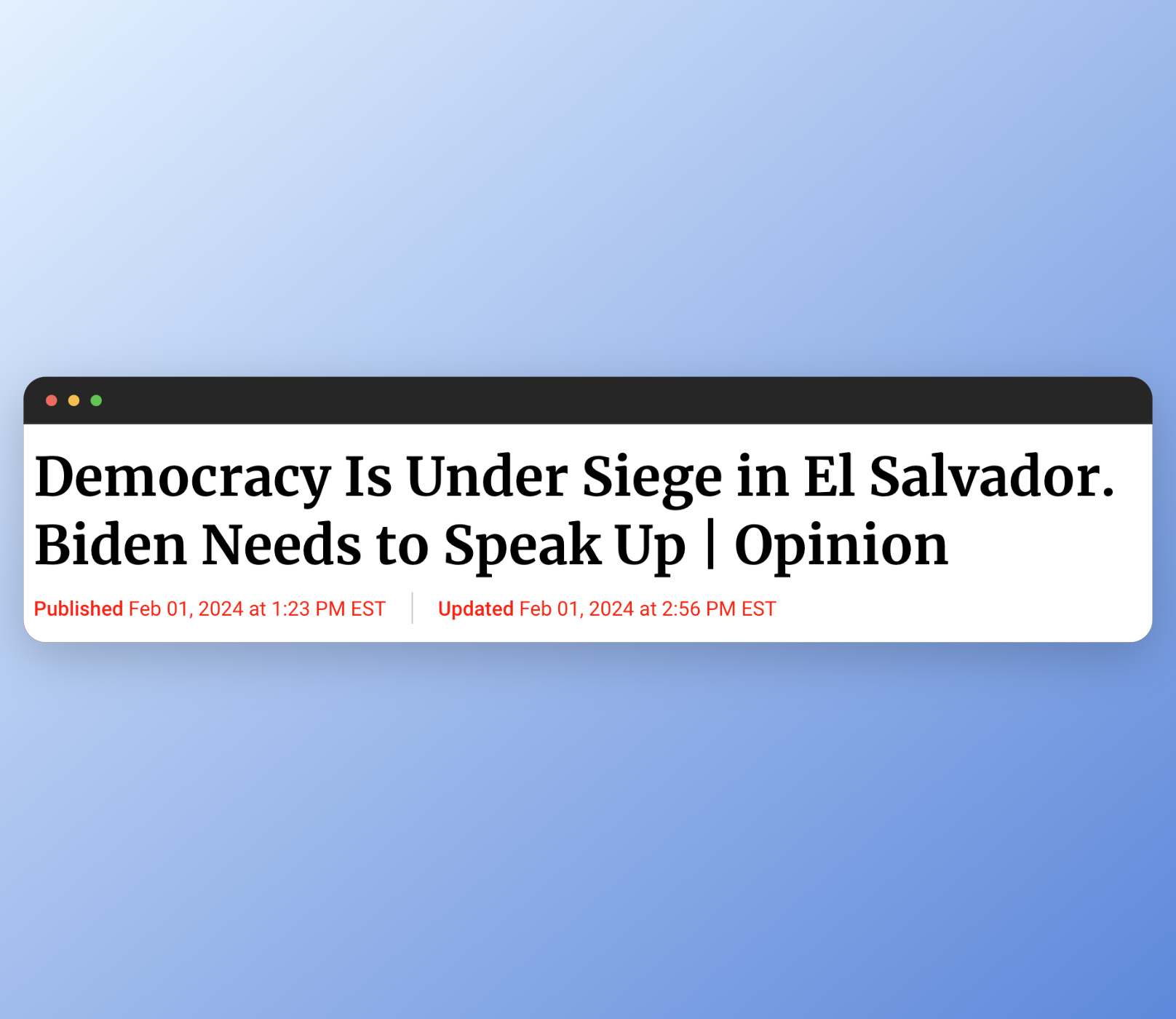The stories we highlight have a profound impact on public conversation, and the recent media focus on El Salvador, President Nayib Bukele, and the nation's groundbreaking Bitcoin initiative serves as a stark illustration of media bias and its consequences.
With President Bukele's landslide reelection victory, securing 85% of the votes, the timing and tone of the mainstream media's scrutiny warrant a closer look.
The Election and Its Aftermath
President Bukele's overwhelming reelection victory, with a staggering 85% of the vote, is a testament to his popularity and the public's endorsement of his policies, including the bold move to adopt Bitcoin as legal tender.
This significant political milestone, announced in 2021, was preceded by years of mostly negative media coverage which intensified before the 2024 presidential election.
This raises questions about the role of journalism in shaping political and financial landscapes.
Let's look at some examples, starting with The Guardian's Thomas Graham, a freelance journalist based in Mexico City:

He says; "One is a glimmering vision of a hi-tech future: a country that hosts Miss Universe and dreams of bitcoin mines powered by volcanoes. The other is a kind of police state, where more than 2% of the adult population has been locked up, many without trial, turning one of Latin America’s most violent countries into one of its safest."
Highlighting another article, an opinion piece in Newsweek by Guggenheim Fellow Robin Broad and John Cavanagh, Senior Advisor at the Institute for Policy Studies, titled "Democracy Is Under Siege in El Salvador. Biden Needs to Speak Up", they went on to report that "U.S. lawmakers protested Bukele's move to make Bitcoin legal tender alongside the dollar, citing cryptocurrency's ease in laundering money".

After the elections, when President Bukele was indeed re-elected, there were subtle signs of difficulty from some outlets in accepting his victory, almost appearing to cope with the outcome.
Ishaan Tharoor, a columnist at The Washington Post, wrote, "Bukele’s attention-grabbing, quixotic bid to make bitcoin legal tender in El Salvador has done little to address deeper problems."
A sentiment that was echoed by The Guardian, which noted, "There has not been much momentum on his highly publicised plans for Bitcoin City, a tax-free crypto haven powered by geothermal energy from a volcano."
Meanwhile, Christine Murray of The Financial Times won the most entertaining headline with "The ‘cult’ of Bukele: El Salvador’s millennial strongman heads for second term," highlighting that "Bitcoin is legal tender; roughly one in 45 adults is in jail; and the former nightclub manager turned president stormed congress with the military less than a year after taking office."
In contrast, Forbes contributor Susie Violet Ward offered a more balanced perspective, stating, "Bukele's landslide victory is a testament to the Salvadoran population's endorsement of his governance and bitcoin strategy."
She added, "While challenges remain, particularly in balancing the enthusiasm for cryptocurrency with economic stability and international relations, Bukele's second term presents an opportunity to solidify El Salvador's position as a pioneering bitcoin nation."
This upcoming analysis aims to shed light on the nuances of the narrative, offering insights into how local versus international media have portrayed El Salvador's foray into cryptocurrency.
Journalism's Role: Beyond the Political Fray
We live in a time where this has to be explicitly said: The role of financial journalism should transcend political affiliations, and should strive to inform and present a multifaceted view of complex issues.
The recent coverage of El Salvador's Bitcoin adoption underscores this need, and it is increasingly clear that for some outlets, journalism struggles to maintain its independence, not being able to avoid the pitfalls of becoming a mouthpiece for political agendas.
Journalism is supposed to exist in order to offer a comprehensive view that respects the intelligence of readers and the integrity of the profession.
This is what the anticipated research piece by Bitcoin Perception and Luis David Esparragoza promises to contribute significantly to this discourse with, providing a much-needed examination of media coverage in a time of financial innovation.
Because the call for a balanced and nuanced approach to financial reporting has never been more critical.







